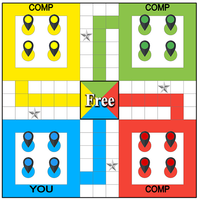The Persona series, which began as a spin-off of the Shin Megami Tensei franchise, has evolved into a powerhouse in the world of modern RPGs. Its expansive universe has not only captivated gamers but has also ventured into other media forms like anime and stage plays, cementing its status as a multimedia phenomenon. With the recent release of Persona 3 Reload on PlayStation 5, Xbox Series X, and PC, newcomers to the series might be curious about where to start their journey. Below, we provide a comprehensive guide to all Persona games and spin-offs, including the best entry points for beginners and both the chronological and release order of the series.
Jump to:
- How to play in order
- How to play by release date
- Upcoming releases
How Many Persona Games Are There?
Currently, the Persona series boasts twenty games. This includes mainline entries and their enhanced versions, which may feature new story content or remakes. While direct ports and remasters are not included in this count, we will highlight every alternate version of each game in our listings.
Which Persona Game Should You Play First?
For those new to the series, diving into Persona 3 Reload, Persona 4 Golden, or Persona 5 Royal is a solid choice. These are the most recent iterations of the third, fourth, and fifth mainline entries, respectively, and are available on PC and major consoles (with the exception of Persona 3 Reload on Nintendo Switch).
Each game offers a standalone story with new characters, making it easy for newcomers to start with any of these titles without missing out on the overarching narrative. To help decide, consider watching gameplay videos and exploring the social links in each game to find the one that resonates with you the most.
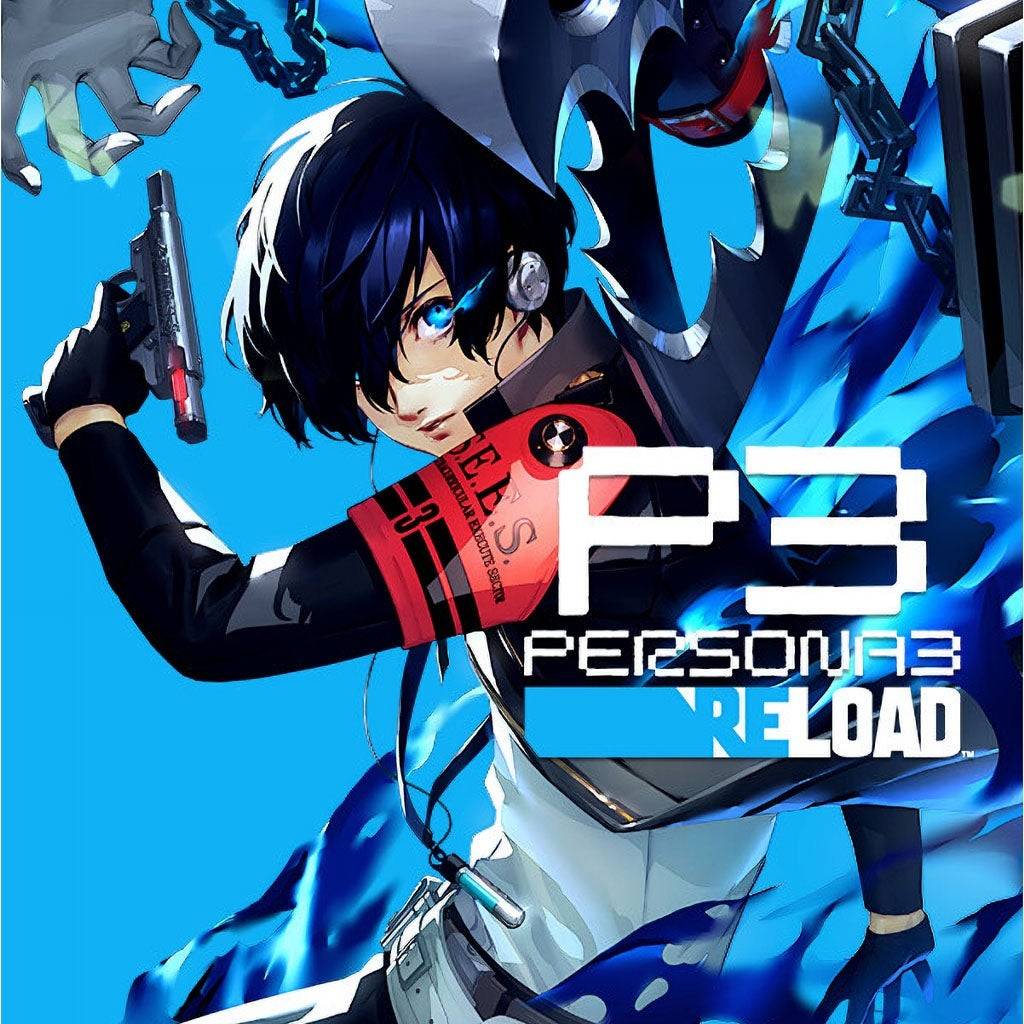
Persona 3 Reload
54 Available on PS5, PS4, and Xbox Series X. See it at Amazon
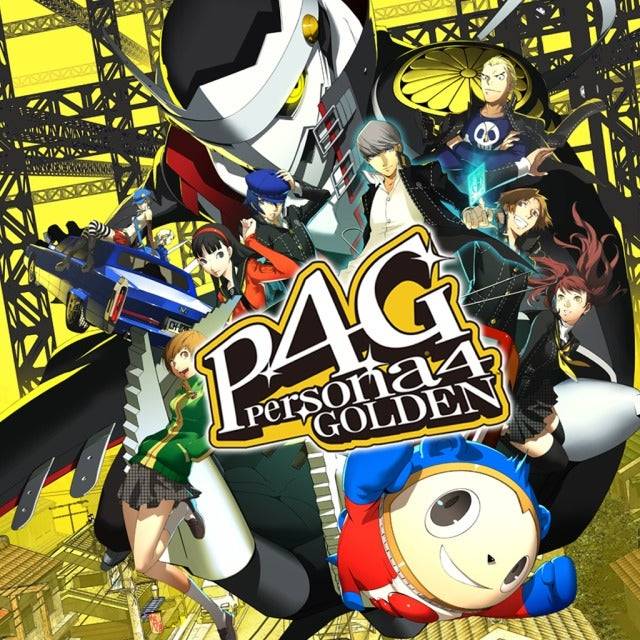
Persona 4 Golden
42 Available on PC, Xbox, PS5, and Nintendo Switch See it at Nintendo

Persona 5 Royal
103 Available on PC, Xbox, PS5, and Nintendo Switch See it at Amazon
Every Persona Game and Spin-Off in Chronological Order
These blurbs contain mild spoilers for each game, including characters, settings, and story beats.
1. Revelations: Persona (1996)
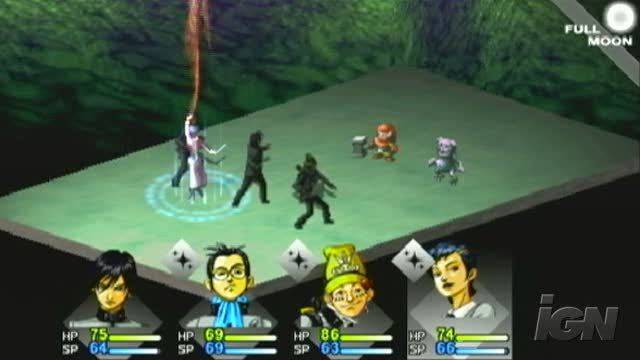 The inaugural game of the series, Revelations: Persona, was inspired by the success of Shin Megami Tensei: If… and focused on a group of high school students battling a supernatural uprising in Mikage-cho. Players harness the power of Personas to combat shadows in dungeons, laying the groundwork for the series' signature elements like the Velvet Room and a teenage cast.
The inaugural game of the series, Revelations: Persona, was inspired by the success of Shin Megami Tensei: If… and focused on a group of high school students battling a supernatural uprising in Mikage-cho. Players harness the power of Personas to combat shadows in dungeons, laying the groundwork for the series' signature elements like the Velvet Room and a teenage cast.
2. Persona 2: Innocent Sin (1999)
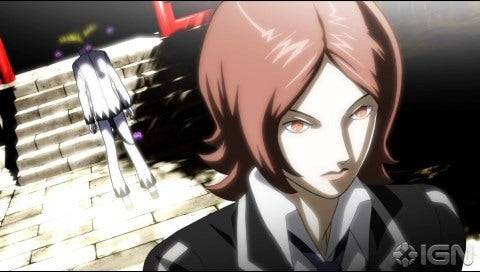 Persona 2: Innocent Sin introduced players to Tatsuya Suou and his friends, who battle a sinister cult and the villain known as Joker. The game's narrative revolves around rumors coming to life in Sumaru City, maintaining the series' focus on dungeon exploration and Persona combat. A direct sequel, Persona 2: Eternal Punishment, followed a year later.
Persona 2: Innocent Sin introduced players to Tatsuya Suou and his friends, who battle a sinister cult and the villain known as Joker. The game's narrative revolves around rumors coming to life in Sumaru City, maintaining the series' focus on dungeon exploration and Persona combat. A direct sequel, Persona 2: Eternal Punishment, followed a year later.
Read our review of Persona 2: Innocent Sin.
3. Persona 2: Eternal Punishment (2000)
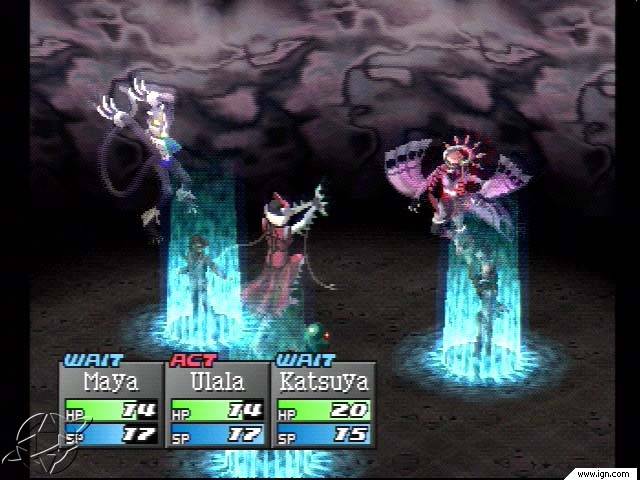 In Eternal Punishment, Maya Amano takes the lead as the protagonist, continuing the story from Innocent Sin. The game follows the same turn-based, dungeon-crawling style, with players facing off against shadows using their Personas.
In Eternal Punishment, Maya Amano takes the lead as the protagonist, continuing the story from Innocent Sin. The game follows the same turn-based, dungeon-crawling style, with players facing off against shadows using their Personas.
Read our review of Persona 2: Eternal Punishment.
4. Persona 3 (2006) / Persona 3 FES (2007) / Persona 3 Portable (2009) / Persona 3 Reload (2024)
 Persona 3 marked a significant shift by integrating a daily calendar system, balancing school life with supernatural battles in Tartarus. The story follows Makoto Yuki, who navigates the mysterious Dark Hour, fighting to uncover a global threat. This entry introduced social links and daily activities that became hallmarks of the series.
Persona 3 marked a significant shift by integrating a daily calendar system, balancing school life with supernatural battles in Tartarus. The story follows Makoto Yuki, who navigates the mysterious Dark Hour, fighting to uncover a global threat. This entry introduced social links and daily activities that became hallmarks of the series.
Read our review of Persona 3 Reload.
Alternate Versions of Persona 3:
Persona 3 has been re-released multiple times. Persona 3 FES added a new chapter and an alternate female protagonist. Persona 3 Portable included the female protagonist but omitted the new chapter. Persona 3 Reload, a modern remake, focuses on the base game without the additional content.
5. Persona 3: Dancing in Moonlight (2018)
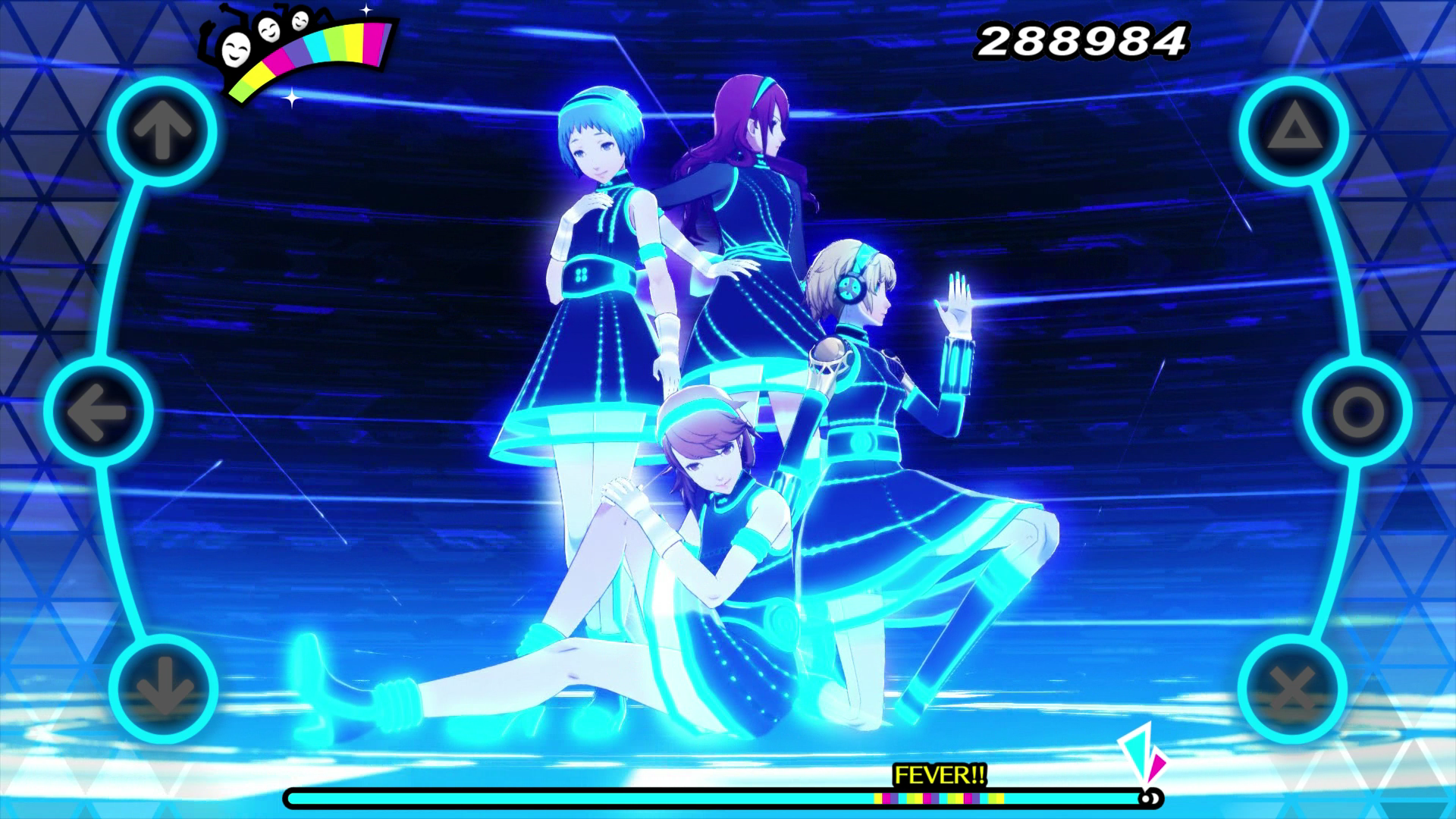 In this rhythm-based spin-off, the S.E.E.S team competes in a dance-off within the Velvet Room, set during a dream sequence that remains canon to the story.
In this rhythm-based spin-off, the S.E.E.S team competes in a dance-off within the Velvet Room, set during a dream sequence that remains canon to the story.
6. Persona 4 (2008) / Persona 4 Golden (2012)
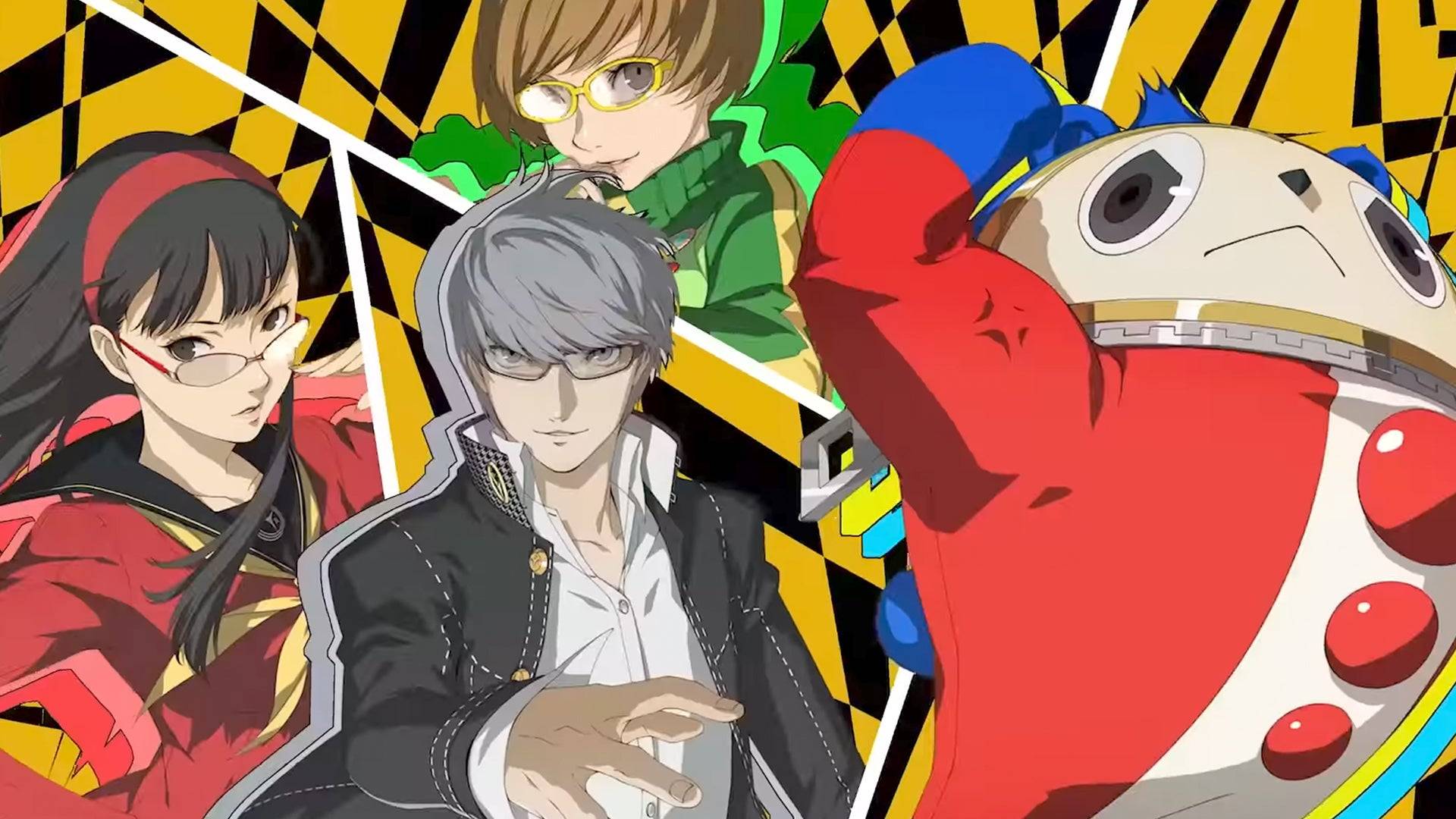 Set in the rural town of Inaba, Persona 4 follows Yu Narukami as he investigates a series of murders linked to a mysterious realm accessible through TV monitors. The game expands on Persona 3's mechanics, enhancing the calendar system and social links.
Set in the rural town of Inaba, Persona 4 follows Yu Narukami as he investigates a series of murders linked to a mysterious realm accessible through TV monitors. The game expands on Persona 3's mechanics, enhancing the calendar system and social links.
Read our review of Persona 4 Golden.
Alternate Versions of Persona 4:
Persona 4 Golden is an enhanced re-release that adds new story content and an additional dungeon, considered the definitive way to experience the game.
7. Persona Q: Shadow of the Labyrinth (2014)
 Persona Q: Shadow of the Labyrinth blends the casts of Persona 3 and 4 in a crossover adventure set during key events in both games. The teams navigate a labyrinth within a warped version of Yasogami High School, facing new enemies in a nod to the series' dungeon-crawler origins.
Persona Q: Shadow of the Labyrinth blends the casts of Persona 3 and 4 in a crossover adventure set during key events in both games. The teams navigate a labyrinth within a warped version of Yasogami High School, facing new enemies in a nod to the series' dungeon-crawler origins.
Read our review of Persona Q: Shadow of the Labyrinth.
8. Persona 4 Arena (2012)
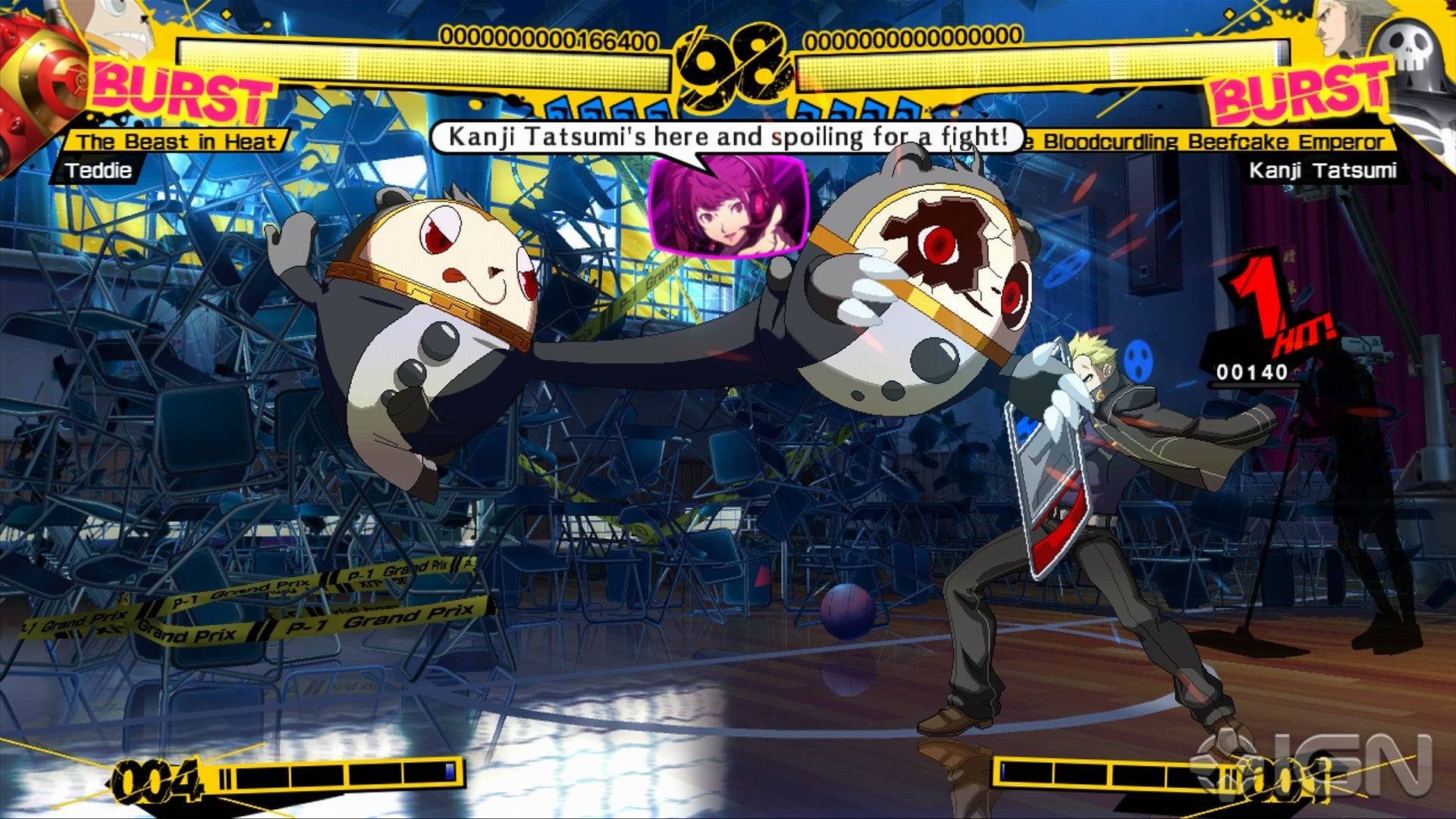 Persona 4 Arena serves as a narrative bridge between Persona 3 and 4, featuring a fighting game set in the TV world. Yu Narukami and allies from both games participate in a mysterious tournament.
Persona 4 Arena serves as a narrative bridge between Persona 3 and 4, featuring a fighting game set in the TV world. Yu Narukami and allies from both games participate in a mysterious tournament.
Read our review of Persona 4 Arena.
9. Persona 4 Arena Ultimax (2013)
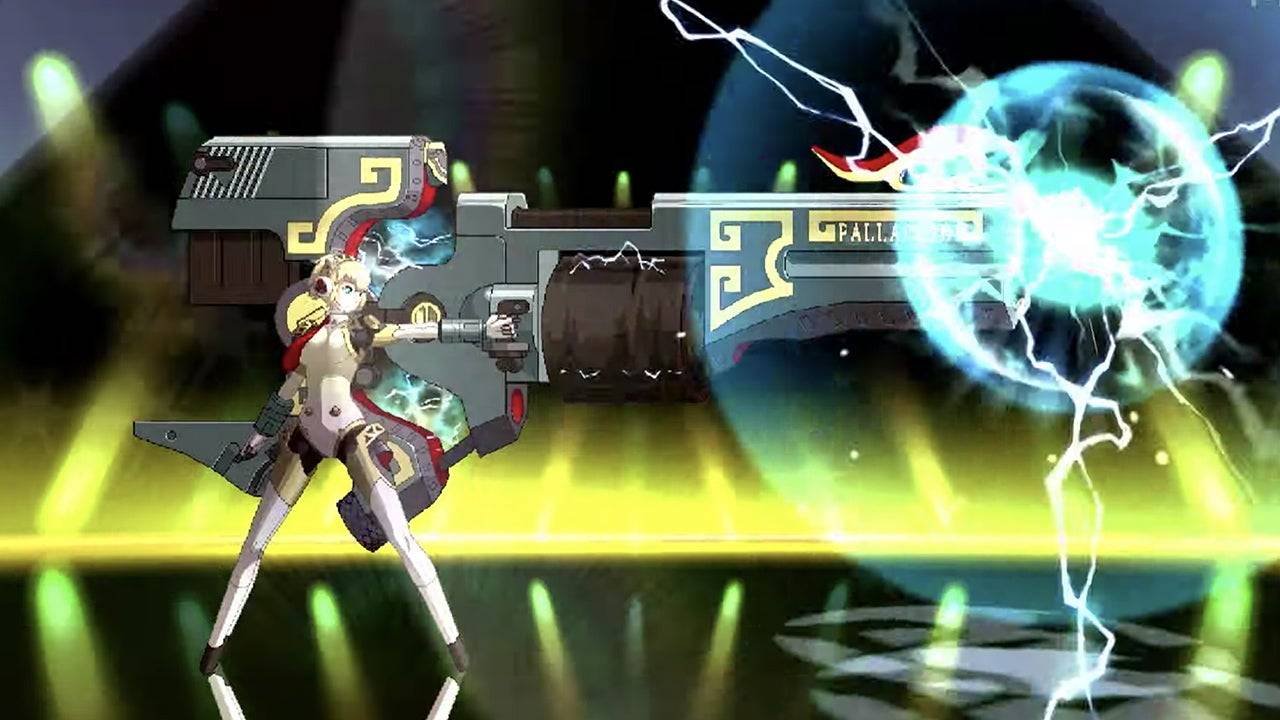 Following directly from Persona 4 Arena, Ultimax expands the roster and continues the story of the fighting tournament, with characters from both Persona 3 and 4 teaming up.
Following directly from Persona 4 Arena, Ultimax expands the roster and continues the story of the fighting tournament, with characters from both Persona 3 and 4 teaming up.
Read our review of Persona 4 Arena Ultimax.
10. Persona 4: Dancing All Night (2015)
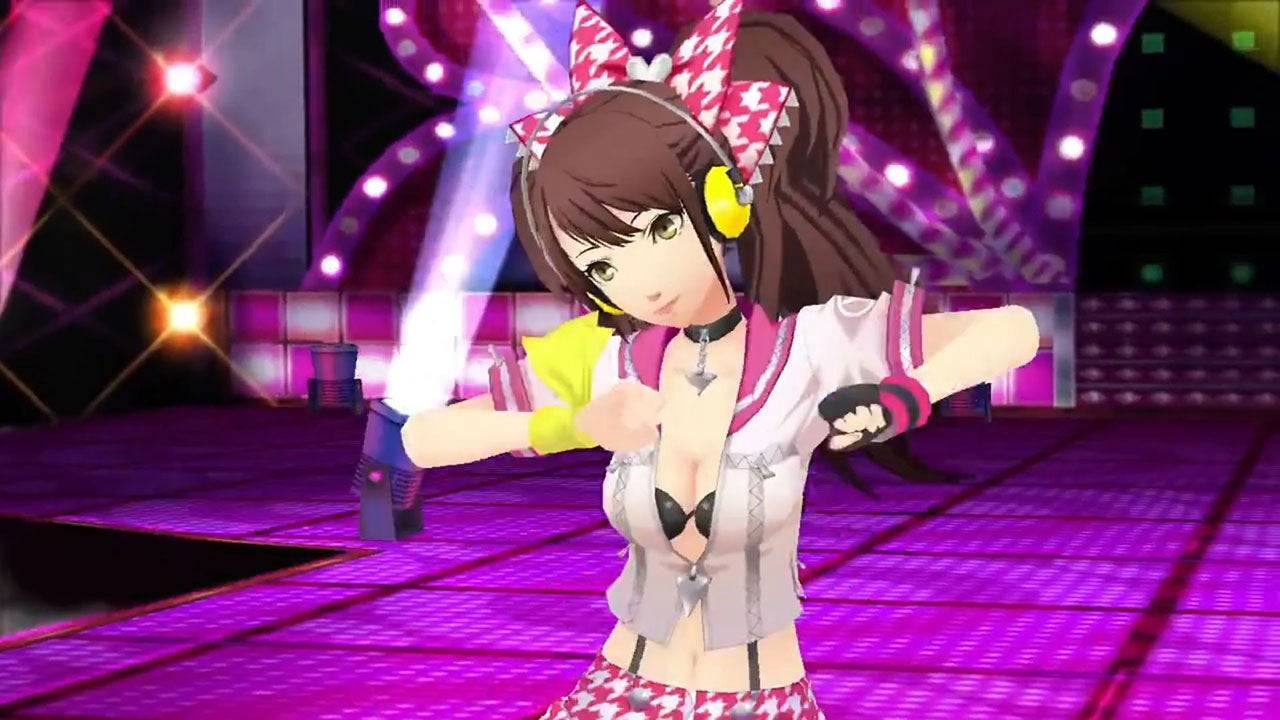 This rhythm-based game features the Investigation Squad dancing in the Midnight Stage, offering a canon continuation of the Persona 4 storyline.
This rhythm-based game features the Investigation Squad dancing in the Midnight Stage, offering a canon continuation of the Persona 4 storyline.
Read our review of Persona 4: Dancing All Night.
11. Persona 5 (2016) / Persona 5 Royal (2019)
 Persona 5 takes players to Tokyo, where protagonist Joker and his friends, the Phantom Thieves, infiltrate supernatural palaces to change the hearts of corrupt individuals. The game's success propelled the series to new heights, becoming Atlus' best-selling title.
Persona 5 takes players to Tokyo, where protagonist Joker and his friends, the Phantom Thieves, infiltrate supernatural palaces to change the hearts of corrupt individuals. The game's success propelled the series to new heights, becoming Atlus' best-selling title.
Read our review of Persona 5 Royal.
Alternate Versions of Persona 5:
Persona 5 Royal enhances the original with new content, including a new companion, dungeon, and an additional semester, making it the ultimate version of the game.
12. Persona Q2: New Cinema Labyrinth (2018)
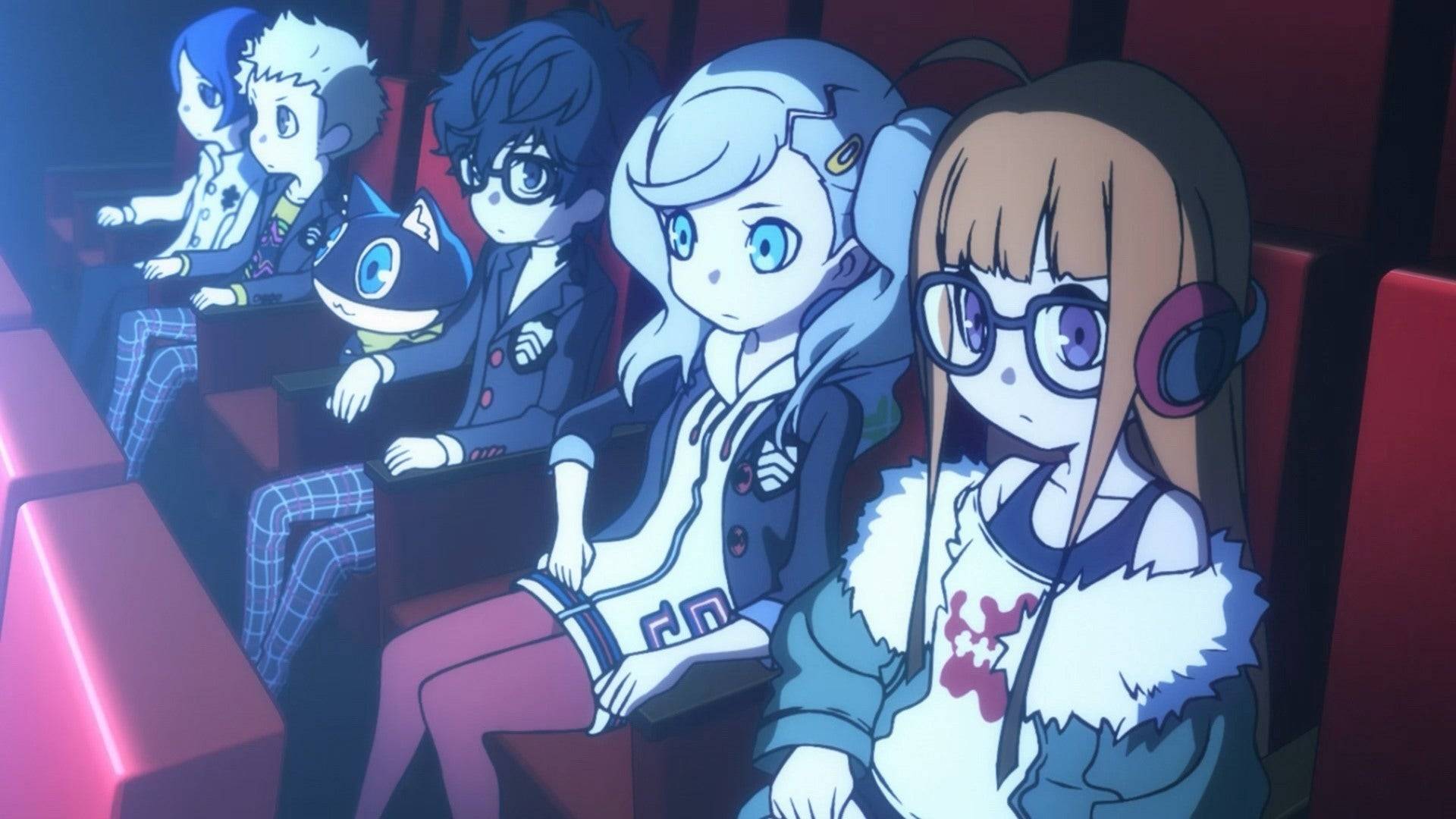 A sequel to Persona Q, New Cinema Labyrinth brings together characters from Persona 3, 4, and 5 as they navigate movie-themed dungeons to escape a mysterious theater.
A sequel to Persona Q, New Cinema Labyrinth brings together characters from Persona 3, 4, and 5 as they navigate movie-themed dungeons to escape a mysterious theater.
13. Persona 5 Tactica (2023)
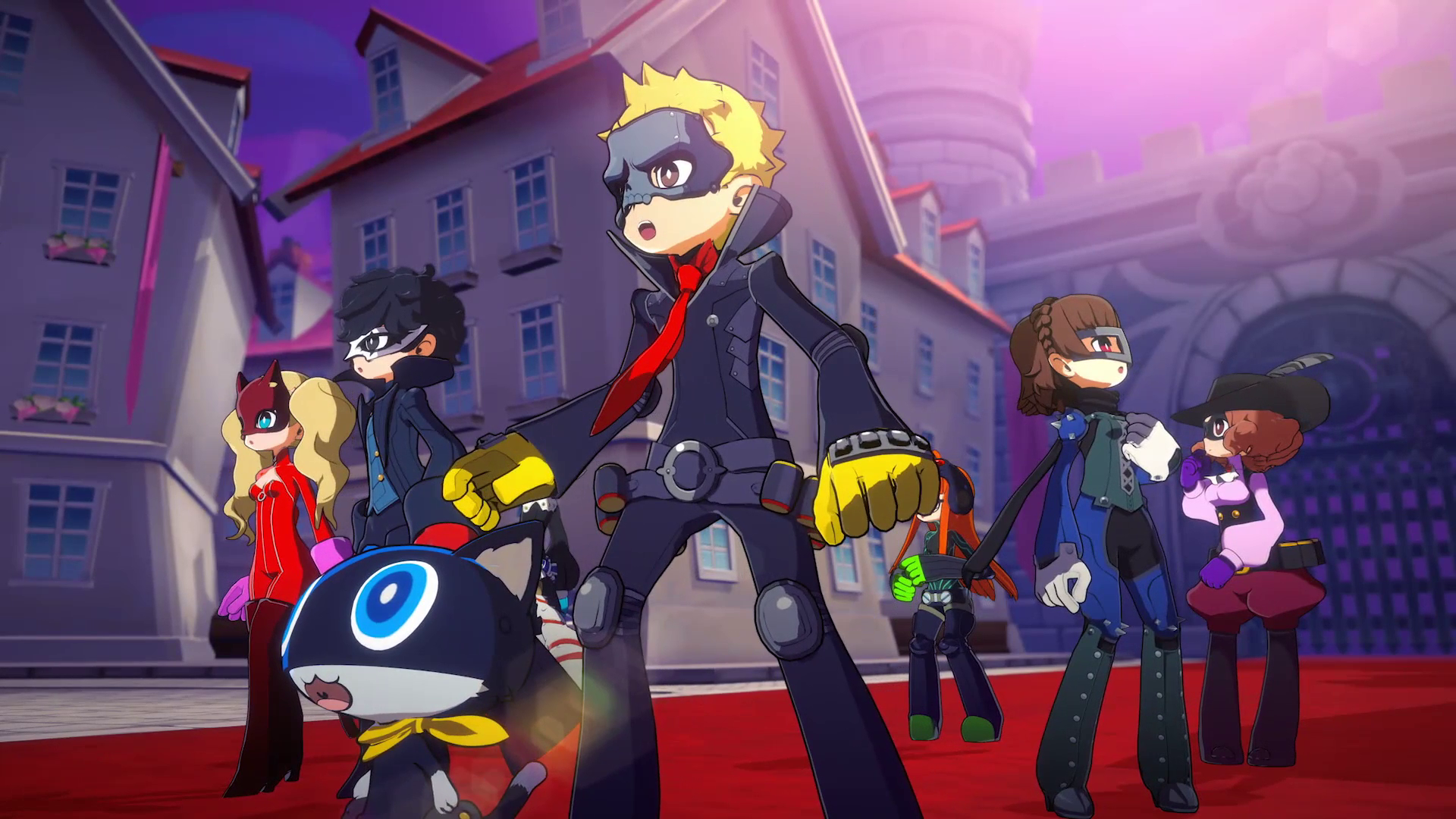 Set during the events of Persona 5, Tactica is a strategy-focused spin-off where the Phantom Thieves fight in an alternate realm, utilizing a tactical grid-based combat system.
Set during the events of Persona 5, Tactica is a strategy-focused spin-off where the Phantom Thieves fight in an alternate realm, utilizing a tactical grid-based combat system.
Read our review of Persona 5 Tactica.
14. Persona 5: Dancing in Starlight (2018)
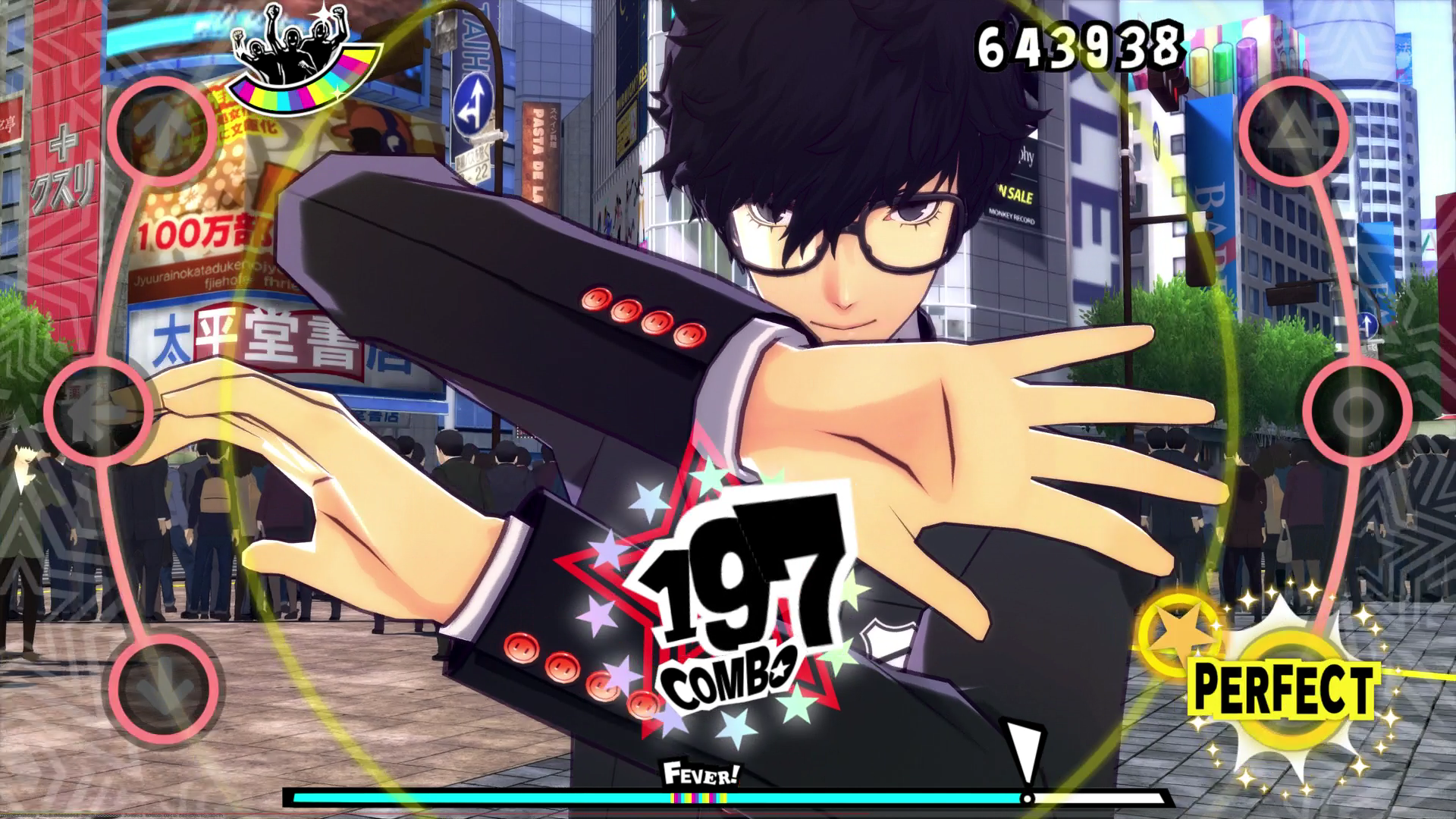 This rhythm-based game features the Phantom Thieves dancing in the Velvet Room, challenging them to perform to iconic Persona 5 tracks.
This rhythm-based game features the Phantom Thieves dancing in the Velvet Room, challenging them to perform to iconic Persona 5 tracks.
15. Persona 5 Strikers (2020)
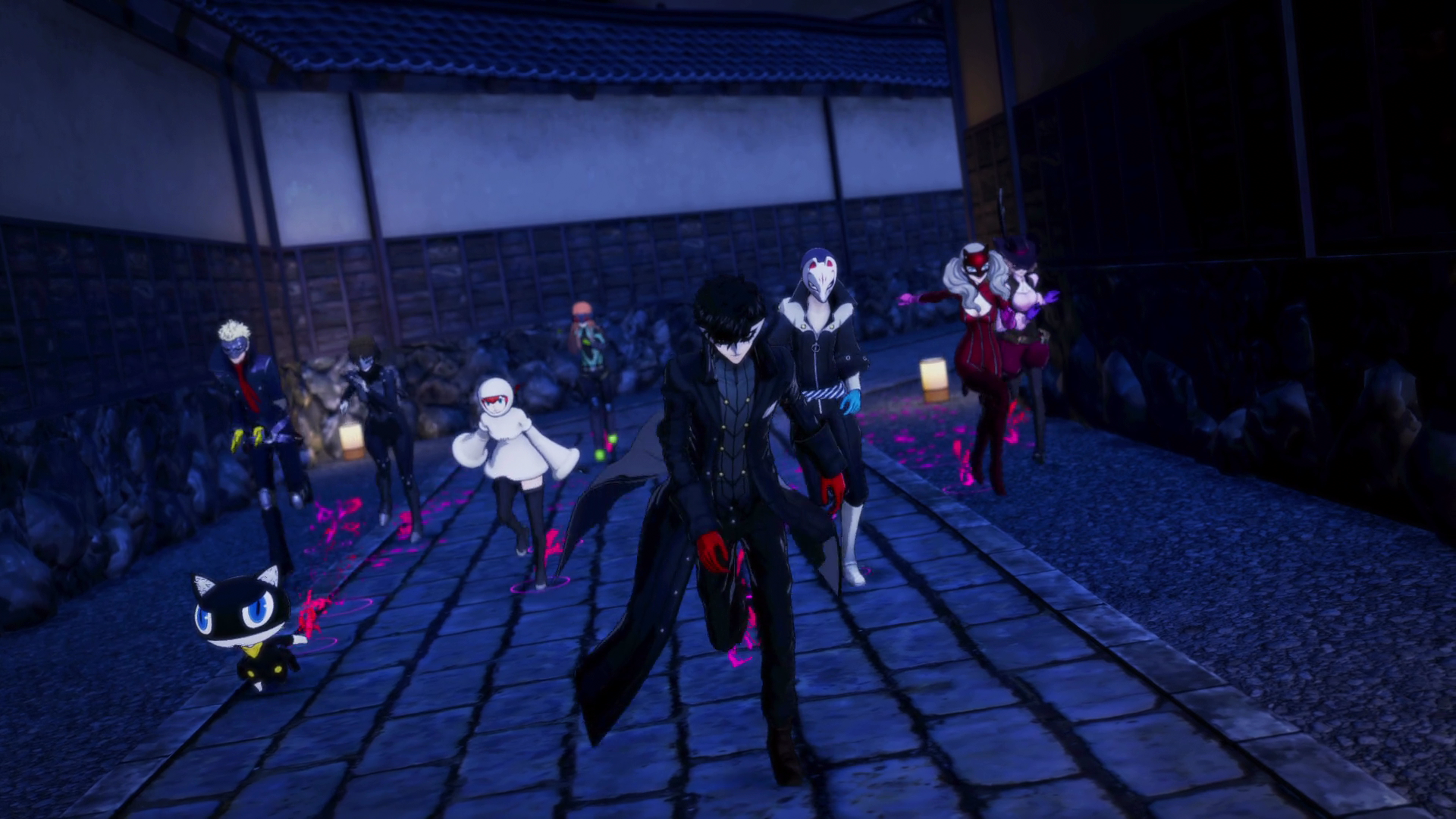 Set post-Persona 5, Strikers reunites the Phantom Thieves for a summer adventure, blending real-time combat with the series' signature elements.
Set post-Persona 5, Strikers reunites the Phantom Thieves for a summer adventure, blending real-time combat with the series' signature elements.
Read our review of Persona 5 Strikers.
Every Persona Game and Spin-Off in Release Order
- Revelations: Persona (1996)
- Persona 2: Innocent Sin (1999)
- Persona 2: Eternal Punishment (2000)
- Persona 3 (2006)
- Persona 3 FES (2007)
- Persona 4 (2008)
- Persona 3 Portable (2009)
- Persona 4 Arena (2012)
- Persona 4 Golden (2012)
- Persona 4 Arena Ultimax (2013)
- Persona Q: Shadow of the Labyrinth (2014)
- Persona 4: Dancing All Night (2015)
- Persona 5 (2016)
- Persona 3: Dancing in the Moonlight (2018)
- Persona 5: Dancing in the Starlight (2018)
- Persona Q2: New Cinema Labyrinth (2018)
- Persona 5 Royal (2019)
- Persona 5 Strikers (2020)
- Persona 5 Tactica (2023)
- Persona 3 Reload (2024)
What's Next for Persona?
In 2024, fans of Atlus RPGs were treated to two significant releases: Persona 3 Reload and Metaphor: ReFantazio, a new RPG from Atlus's Studio Zero. Following the success of Metaphor, Sega expressed their commitment to further invest in Atlus and the Persona franchise during a developers' Q&A session.The next Persona project on the horizon is Persona 5: The Phantom X, a free-to-play mobile game released in several Asian countries in 2024, with a Japanese release planned soon after a closed beta. A global release is anticipated, though no official date has been confirmed. The Phantom X offers an original story set in the Persona 5 universe, featuring new characters who take on the roles of the Phantom Thieves.
Looking further ahead, Persona 6 is highly anticipated, though Atlus has yet to officially announce its development.









